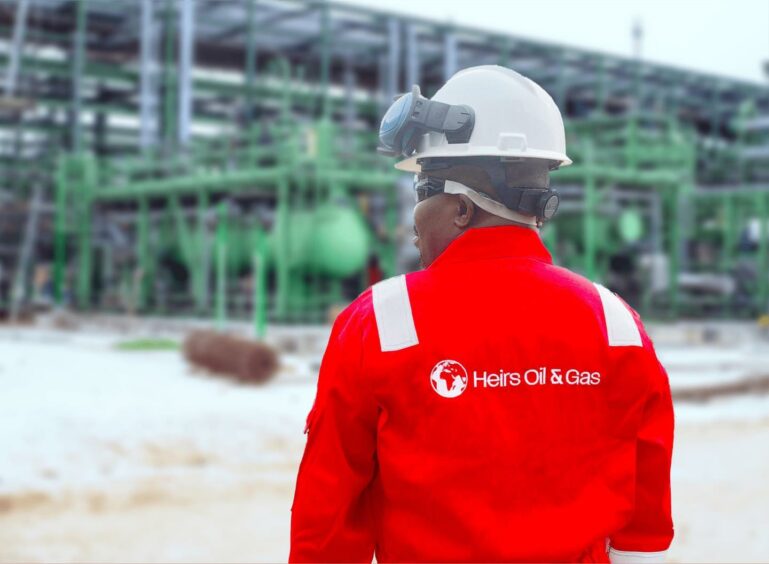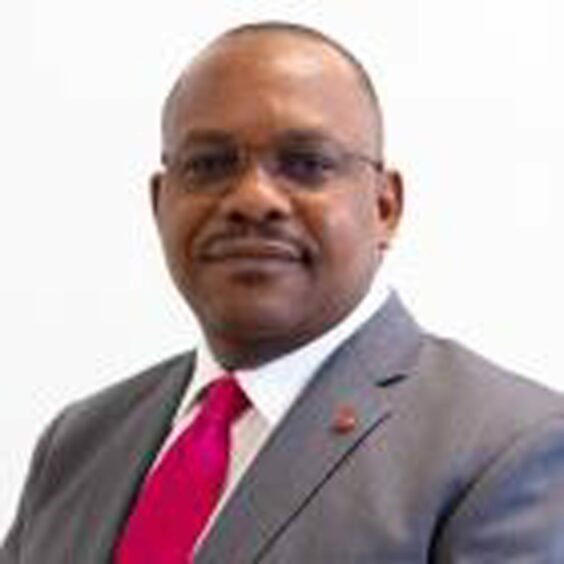
Nigeria’s companies are starting to play an increasingly important role in the country’s production, particularly given the waning appetite for onshore risk from IOCs.
Heirs Oil & Gas, part of Tony Elumelu’s Heirs Holdings, is one such company. CEO Osayande Igiehon said the social impact of the company ranked with its business needs in terms of goals.
“Commercial success and social impact drives everything we do,” Igiehon said. US-based Environmental Defence Fund (EDF) named Heirs for overseeing an increase in flaring at an asset the company bought from Shell Petroleum Development Co. (SPDC).
Igiehon said tackling flaring was a priority for Heirs. “We have to deal with the historic legacy,” he said. The company has five oil facilities, of which four has gas-gathering units.
“The one field where we don’t have a gas-gathering facility, we have a plan to take up the flares from that location. We have an ambition to end flaring by 2025, while Nigeria is aiming for 2030,” the executive said. “Routine flaring has reduced significantly.”
Gas has an important role in meeting Nigeria’s power and industrial needs, Igiehon said, noting there was “no gas to waste”.
Energy mix
Heirs sees scope to expand its oil facilities, through work on brownfield assets.
“There’s not going to be new ones. We intend to grow significantly in gas. Capital will be required. Our ambition is to be an integrated energy company.” Beyond hydrocarbons, the executive raised the prospect of a move into renewables.
As demonstration of Heirs’ intent, the company has completed a non-associated gas plant that the previous operator had struggled with for eight years. “We have doubled what we inherited. We are very big on gas.”
He linked the company’s capacity to secure capital for expansion to how the company operated.
“For the group with the right ambitions, the right environmental credentials and the right corporate structure, operating to international standards, we will be able to get the capital for our expansion,” he said.
Operating responsibly, he said, would help reduce Nigeria’s carbon footprint.
Talking safety
Igiehon was a Shell veteran, scaling the IOC’s ranks for nearly 30 years. His last job at the company was as vice president of HSSE and assurance in The Hague, with a global remit.
“With a highly experienced workforce, this asset is not new to us,” Igiehon said. Heirs has built up a company of around 200 workers, with plans to expand further to attract mid-career and new graduates.
The executive praised the regulatory environment created by Nigerian Upstream Petroleum Regulatory Commission (NUPRC) and Nigerian Midstream and Downstream Petroleum Regulatory Authority (NMDPRA).
“We as a company want to act right, we proactively comply with all regulations.” The company aims to achieve “no harm to people, no harm to assets, no harm to the environment”.
Since taking over its 45% stake in OML 17 on July 1, 2021, Heirs has had no operational spills and no lost time incidents (LTIs).
“Our protocols are like those of IOCs. I can’t generalise our practices to everyone, there are indigenous companies at different stages in their safety practices. We’ve operated from day one with the intent to perform to international standards,” he said.
Community dealings
While the company has had no operational spills, it has suffered as a result of bunkering and sabotage. Igiehon said these stemmed from a “complex situation” that has built up over decades. “It’s going to take dedicated efforts to resolve, but it can be. We would not have invested in the asset if we didn’t think it was possible.”
He set out four areas of improvement. The Petroleum Industry Act (PIA), which gives more commitments around community involvement; community surveillance of pipelines and infrastructure; improved technology; and demonstrating the connection between the industry and the economy.
“Hydrocarbons shouldn’t just be exported. If they’re processed locally, they can provide jobs and livelihoods,” he said.
Nigeria has a long way to go in tackling poverty and in capturing the full value of its energy industry. The historic producers from overseas have tried to tackle some of the country’s problems, but have struggled to make it work.
It is by no means a certainty that the new breed of domestic producers will fare better. Heirs and the company’s broader group have a stated aim of combining business success with action on the energy gap and poverty.
Such statements demonstrate an intent. How these plans pan out – and whether there is finance available – is yet to be fully tested.

 © Supplied by Heirs Holdings
© Supplied by Heirs Holdings